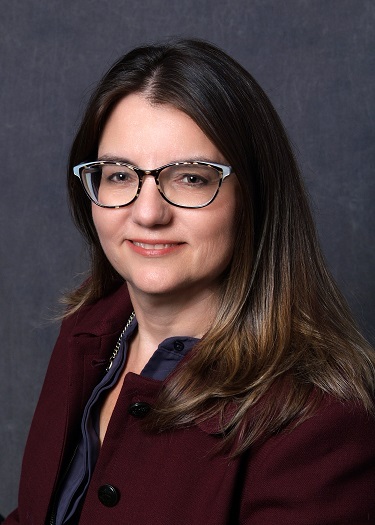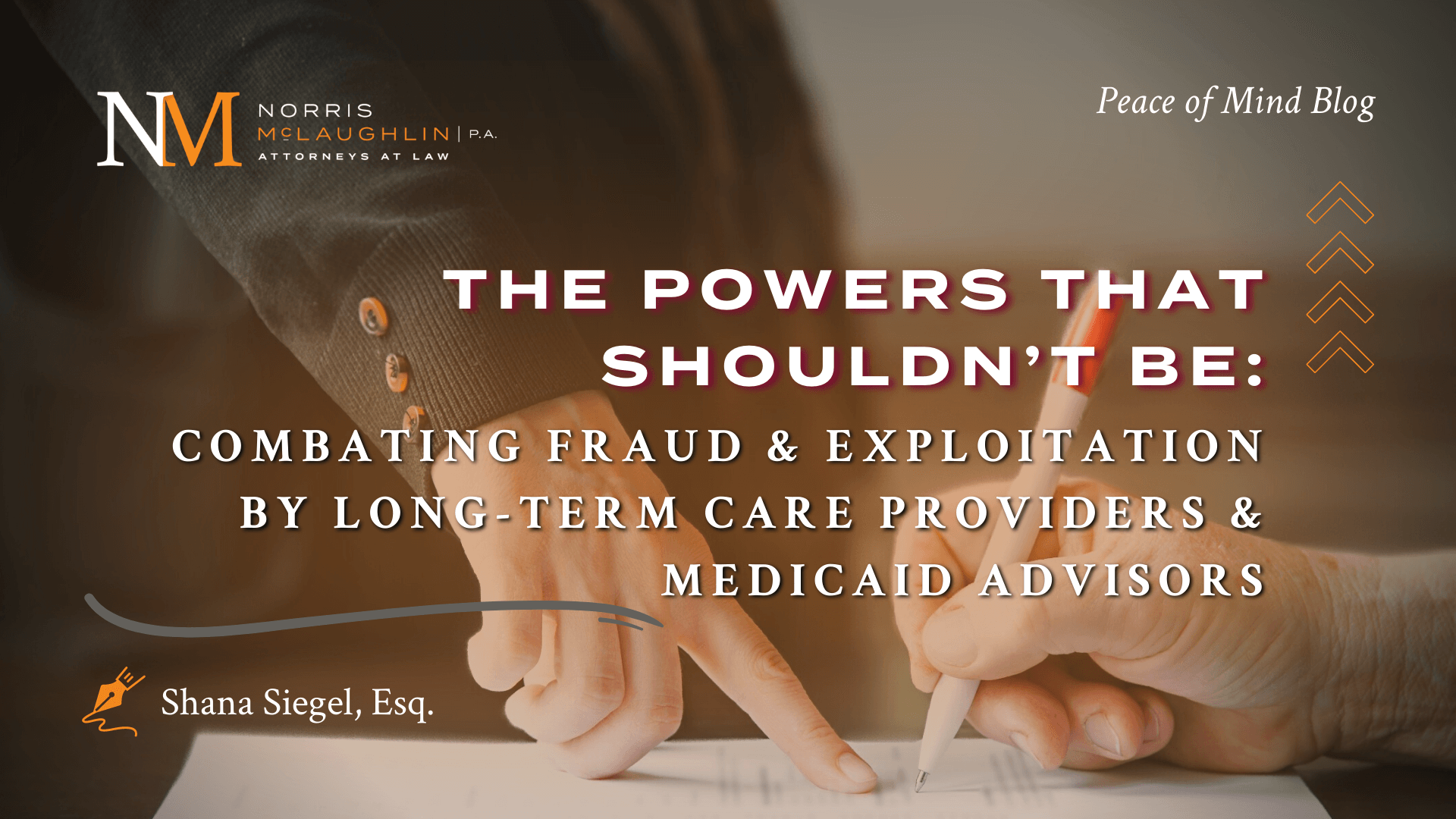“The Importance of Choosing the Right Medicaid Advisor”

Most individuals think they’ll never find themselves or their loved ones on Medicaid. However, the cost of long-term care is so exorbitant that many middle-income seniors turn to Medicaid to pay for their care in assisted living and nursing facilities. Medicaid is complex, with intricate rules that require special attention and planning. While some individuals file applications for their loved ones, those applications are often denied for errors or missing documentation. A denial can result in months of delay and a gap in coverage, with facilities expecting private payment for those months. Thus, many individuals seek help to complete their application. Typically, two types of professionals assist in filing for Medicaid: attorneys, and non-attorney companies sometimes referred to as “Medicaid Advisors” or “Application Assistors.”
Over the last decade, the State of New Jersey has expressed concern about Non-Attorney Medicaid Advisor Companies. In 2016, the Committee on the Unauthorized Practice of Law, appointed by the Supreme Court of New Jersey, issued Opinion 53, which addressed whether non-lawyers assisting with Medicaid applications are engaged in the unauthorized practice of Law.
The committee found that “[a]pplying the law to an individual’s specific circumstances generally is the ‘practice of law.’ A Medicaid advisor or Application Assistor may provide information on insurance programs and coverage options; help individuals complete the application or renewal; help them with gathering and providing required documentation; assist in counting income and assets; submit the application to the agency; and assist with communication between the agency and the individual. But the advisor may not provide legal advice on strategies to become eligible for Medicaid benefits, including advice on spending down resources, tax implications, guardianships, sale or transfer of assets, creation of trusts or service contracts, and the like.” Opinion 53, Non-Lawyer Medicaid Advisors.
Despite this opinion, non-attorney Medicaid Planning Companies have flourished in New Jersey. But why?
Non-Attorney Medicaid Advisors attract consumers by promising lower fees, fast results, and guaranteed approvals. Additionally, some facilities strongly encourage the use of non-attorney Medicaid Advisors, and many families and individuals are unaware they have the right to choose and hire their own counsel.
The Department of Consumer Affairs has investigated several non-attorney Medicaid Advisors. In December 2019, the State of New Jersey and the New Jersey Division of Consumer Affairs filed a civil lawsuit against Advanta Medicaid LLC d/b/a Advanta Medicaid Specialists (“Advanta”). The State alleged Advanta violated the New Jersey Consumer Fraud Act and advertising regulations by engaging in conduct that included the following:
- “Failing to submit applications for Medicaid services for consumers, despite the consumers paying up-front in full for these services.
- Representing to consumers that Medicaid applications had been submitted when, in fact, they had not.
- Representing to consumers that the company would return their sensitive personal and financial documentation, but then failing to do so.
- Failing to honor the money-back guarantee advertised on the company’s website.” See OAG News Release dated December 16, 2019.
On Sept. 18, 2020, a judge entered a default judgment for over $1.66 million against Advanta for violations of the state’s consumer protection laws and regulations. The judgment also canceled Advanta’s business certificate and permanently barred the company from doing business in New Jersey. Of the $1.66 million, $281,450.00 was designated for consumer restitution. Just two weeks ago, a related criminal action was settled, with Advanta’s owner paying an additional $38,000 in restitution and an order to complete 50 hours of community service. The Department also issued guidance earlier this year noting it has received multiple reports of Application Assistors charging substantial sums of money and delivering faulty or incomplete work. If an attorney makes a mistake, they carry malpractice insurance, but non-attorneys can just shut their doors and open under a new business name.
Families are cautioned to do their research and remember that non-attorney companies are prevented from providing legal advice. A Medicaid Application requires more than filling out some forms and providing documents; it is often inherently intertwined with legal strategy.
If you have any questions about this post or any related matters, please feel free to contact us at mlscanlon@norris-law.com or ssiegel@norris-law.com.




